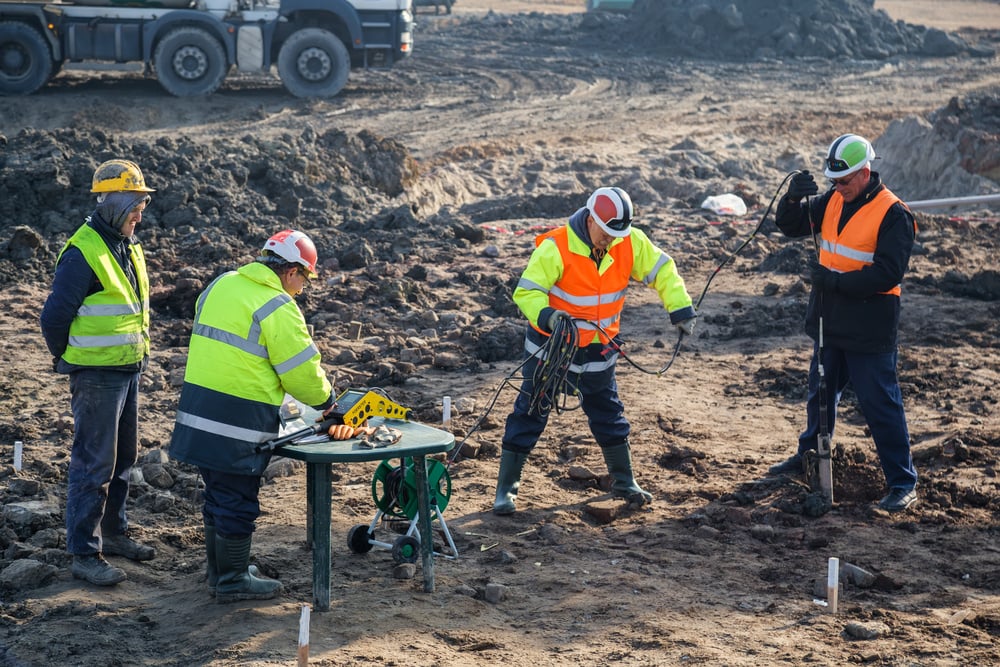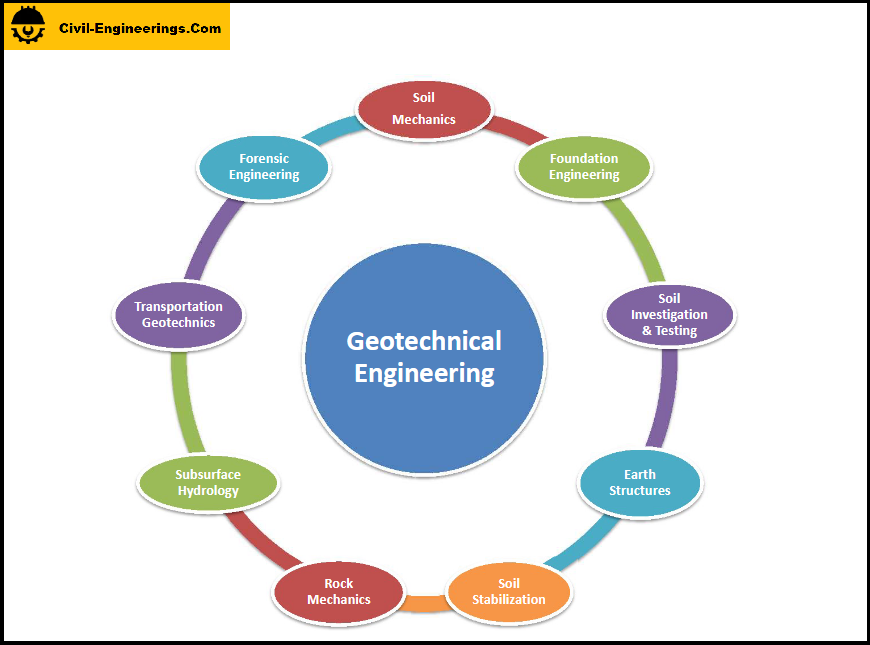Not known Facts About Geotechnical Engineering For Construction Projects
Not known Facts About Geotechnical Engineering For Construction Projects
Blog Article
All about Geotechnical Engineering For Construction Projects
Table of ContentsGet This Report on Geotechnical Engineering For Construction ProjectsThe Ultimate Guide To Geotechnical Engineering For Construction ProjectsGeotechnical Engineering For Construction Projects Things To Know Before You BuyAll About Geotechnical Engineering For Construction ProjectsSome Known Facts About Geotechnical Engineering For Construction Projects.
For that reason, throughout the examination, it is essential to drill at the required depth and the required number of openings according to the recommendation of the Canadian Foundation Style requirement. In some cases, the owner could conserve some Geotechnical Examination cost but wind up spending even more than the anticipated during the construction cost.The responsibilities of the geotechnical specialist entail providing product screening for construction assistance. Geotechnical Engineering for Construction Projects. Geotechnical designers analyse all the field test records to ensure that building and construction is taking place based on the task specification. Throughout building, a confirmatory examination for soil compaction is done on-site to make certain that no future settlement happens
After the concrete is poured -7 days and 28 days- examinations are performed on concrete samples accumulated from the website to make certain that the concrete poured fulfills the design standard. Asphalt core is taken after the Asphalt is laid and compacted to verify that it satisfies the layout requirement. All research laboratory examination reports are analysed by the Geotechnical Engineer to guarantee that it meets the task spec.
Little Known Questions About Geotechnical Engineering For Construction Projects.

Geotechnical design plays a vital role in guaranteeing the stability of construction tasks. Discover exactly how it influences style and overall job success. Geotechnical engineering is an essential branch of civil engineering that concentrates on understanding the practices of planet products, such as dirt and rock. It involves analysing subsurface problems to make sure that a structure's foundation or facilities is secure and secure.

For a trustworthy structure and a smooth construction procedure, trust to supply the experience you need. Contact to obtain specialist suggestions and geotechnical solutions tailored to your following job.
4 Easy Facts About Geotechnical Engineering For Construction Projects Explained
When embarking on a land advancement task, recognizing the ground below your feet is as critical as the structures you plan to build over it. Our Geotechnical Design team analyse the ground, ensuring it appropriates for the proposed growth while providing you with the information required to fulfill your job goals.
Geotechnical Design checks out the formation of the ground, as it is the foundation for all jobs. Where frameworks require to be created with respect to the ground conditions; ground conditions (e.g., soft ground) might need reinforcing relying on the dimension of the intended structure. Before structure, you need to understand about the groundwater, soil framework, and liquefaction likelihood of your land.
For websites that are not linked on the neighborhood authority infrastructure additional website examinations would certainly be needed to supply technical inputs for on-site stormwater and wastewater. We have experienced Geotechnical Designers based in each office, sustaining your geotechnical requirements nationwide. Get to out to us to go over how we can sustain find more information your following project.
These records are tailored to meet the particular needs of a project and consist of design criteria and recommendations for the building of a variety of synthetic structures. As supplying working as a consultant solutions covering areas such as incline security and load-bearing abilities for various products, these engineers take on research and development tasks to improve methods, equipment, materials understanding and evaluation covering entire lifecycles.
Geotechnical Engineering For Construction Projects Fundamentals Explained
Nevertheless, prices of pay normally enhance as your expertise and skills grow, with informative post guidelines directing to a graduate starting wage of in between 18,000 and 28,000 each year in the UK. This increases to 26,000 to 36,000 with a few years of experience and after that getting to 40,000 to 60,000+ for elderly, chartered or master engineers.
Nonetheless, with the appropriate application it is possible to understand the career and gain entrance to a difficult yet fulfilling and vital profession. A geologist would certainly need to retrain to become a geotechnical designer, although there is plenty of cross-over between the two careers, which can make this less complicated - Geotechnical Engineering for Construction Projects. Geologists need to have an understanding of soils, rocks and other products from a scientific perspective, while geotechnical engineers tale their understanding of matters such as dirt and rock mechanic, geophysics and hydrology and use them to design and environmental jobs
When beginning, these designers will certainly tend to function on much less complicated projects, accumulating understanding and experience prepared for more tough work later. Geotechnical engineers often tend to specialise in certain areas as they grow in experience, focusing on certain facilities such as trains, roadways or water. These designers additionally collaborate with renewable resource, offshore and onshore oil and gas, nuclear power, and a lot more.
See This Report on Geotechnical Engineering For Construction Projects
The time taken to come to be a geotechnical designer depends on where you are based, where you research and what level of education you want to obtain prior to getting in the workplace. Generally-speaking it takes 3-4 years to get to the standard demands to start an occupation as a geotechnical designer.
These procedures make it possible for experts to assess a host of dirt mechanics consisting of weight, porosity, void-to-solid bit ratio, permeability, compressibility, optimum shear toughness, birthing capability and contortions. If the framework calls for a deep foundation, engineers will certainly utilize a cone penetration examination to approximate the amount of skin and end bearing resistance in the subsurface.
When examining an incline's equilibrium of shear stress and shear toughness, or visite site its capacity to stand up to and undertake activity, rotational slides and translational slides are generally taken into consideration. Rotational slides fail along a bent surface area, with translational slides occurring on a planar surface. An expert's objective is to figure out the conditions at which a slope failure might occur.
Commonly, searchings for recommend that a site's dirt ought to be treated to boost its shear stamina, stiffness and leaks in the structure prior to style and building and construction. When it comes time to set out structure strategies, specialists are significantly concentrated on sustainability, even more specifically how to decrease a foundation's carbon impact. One method has actually been to replace 20 percent of a structure's concrete with fly ash, a waste product from coal fire nuclear power plant.
Report this page